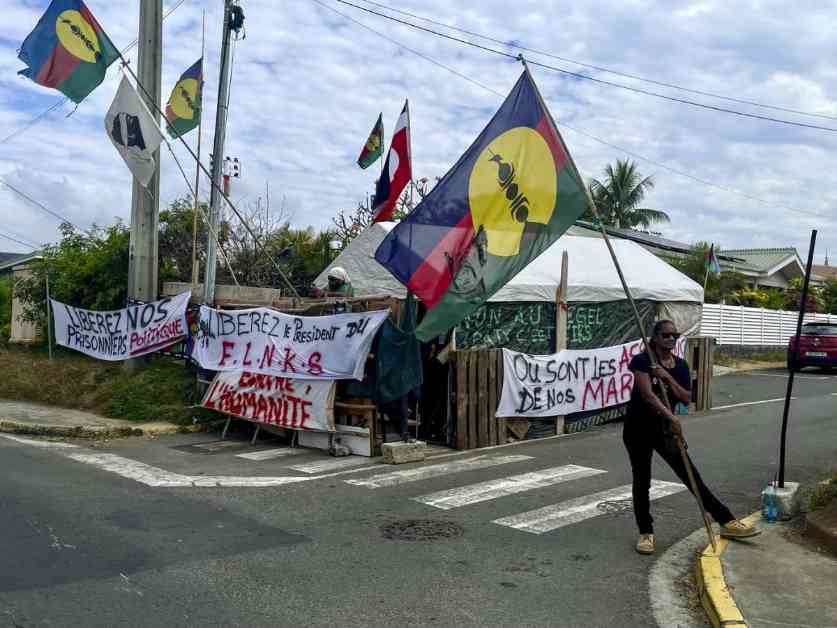New Caledonia commemorated the 171st anniversary of French colonization with tight security measures and lingering tensions between the Indigenous Kanak people and the white settler communities loyal to Paris. The anniversary, marked on September 24th, comes after violent protests by Kanaks against President Emmanuel Macron’s voting reforms earlier this year resulted in 13 deaths and widespread destruction.
The archipelago of New Caledonia, located east of Australia and 10 time zones ahead of Paris, has been a point of contention between the Indigenous Kanak people seeking independence and the white settlers who wish to maintain ties with France. The recent violence has exacerbated the longstanding divide between these communities.
Security in the capital, Noumea, was heightened with the deployment of 6,000 police officers to prevent any potential violence during the anniversary. The day commemorates French Admiral Auguste Febvrier-Despointes’ declaration of French sovereignty over New Caledonia in 1853, marking the territory’s formal incorporation into the French empire.
While loyalist communities in Noumea celebrated New Caledonia’s French identity with national flags and patriotic songs, the Indigenous Kanak people used the day to reaffirm their commitment to the struggle for independence. The National Council of Chiefs of the Kanak people convened on Mare Island to discuss declaring sovereignty over their customary territories.
In response to the violence earlier this year, President Macron’s proposed voting reforms, which aimed to grant electoral rights to recent settlers, were met with resistance from the Indigenous population who feared further erosion of their rights. The bill led to mass demonstrations and fatalities, prompting Macron to declare a state of emergency and deploy additional security forces to the region.
Despite the ongoing tensions, New Caledonia remains a territory deeply divided on the question of independence from France. While recent referendums have shown a majority in favor of remaining part of France, the pro-independence Kanak people have contested the results, citing concerns over the fairness of the voting process.
As New Caledonia navigates its complex history and uncertain future, the anniversary of French colonization serves as a reminder of the ongoing struggle for self-determination and the challenges of reconciling the aspirations of different communities within the territory.












